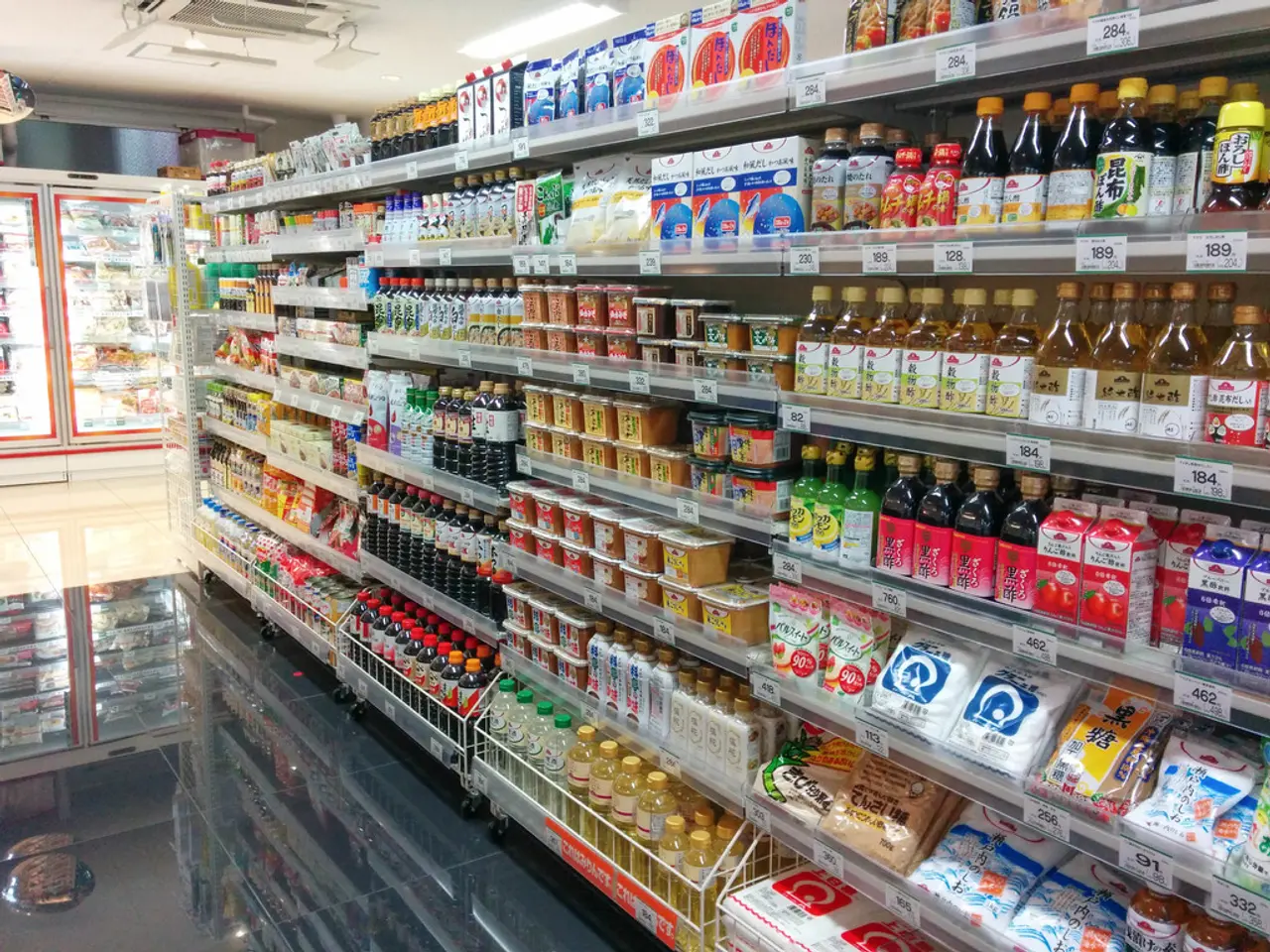Image capture by rosipaw
In the rapidly evolving world of technology, one company stands out as a key player in reshaping the grocery industry - Instacart. This two-year-old company, operating in nine cities, delivers fresh food from brick-and-mortar stores to customers' doors, making grocery shopping more convenient than ever before [1].
Instacart's impact on traditional supermarkets is profound, driving significant growth in online grocery sales. Delivery channels, led by Instacart, are responsible for a 36% year-over-year increase and $4.3 billion monthly growth, as consumers increasingly prefer shopping online [2].
The transformation of the supermarket industry involves integrating advanced technologies like AI-driven personalization, mobile self-checkout, real-time order tracking, and seamless digital loyalty programs. Instacart is at the forefront of this shift, partnering with traditional grocers and leveraging AI to deliver a superior, personalized shopping experience [3].
Instacart operates as a leading SaaS platform and marketplace, connecting multiple grocery chains with consumers. The company uses AI algorithms for personalized recommendations and efficient fulfillment services [4]. Instacart's innovative features, such as real-time order tracking and interactive delivery, improve transparency and user experience [4].
Moreover, Instacart helps traditional grocers capitalize on digital channels by providing flexible options for delivery, including same-day and express services, to meet rising consumer demand [2]. Instacart also supports grocers in building direct customer relationships through branded apps, enabling them to own the shopper experience rather than losing it to third-party platforms [3].
The future of grocery retail points towards a digitally integrated ecosystem where traditional supermarkets coexist and compete with online platforms. Technologies like those pioneered by Instacart will play a central role in enabling speed, personalization, and customer loyalty in the grocery shopping journey [2][3][4][5].
However, the shift towards online grocery delivery could potentially lead to a decrease in the number of physical grocery stores, increasing food deserts. Instacart's model, which allows customers to choose from various grocery stores, including local independent stores and large chains like Costco, helps maintain a balance [6].
Instacart creates flexible jobs by paying freelance shoppers by the hour, contributing to the modern gig economy [7]. The supermarket, about 75 years old, may be ripe for change due to the decline of traditional grocery stores. New developments in smart appliances and the internet of things are attracting venture capital into food technology, nurturing a bumper crop of fresh grocery delivery ideas [8].
Despite the excitement over immediate delivery of various goods, including food, it's essential that grocery tech feels human, comforting, and intuitive to be successful. The perception of food delivery as a drudgery chore could be alleviated by services like Instacart, which aim to make customers feel like the food contains care and love, as humans' earliest food associations are inextricably wrapped in those qualities [9].
Grocery stores could lose significant revenue from food manufacturers if foot traffic decreases due to online grocery services. Instacart's model, which keeps the revenue stream from preferred product placement in brick-and-mortar stores intact, could help mitigate this issue [10].
In conclusion, Instacart is leading the charge in transforming the grocery industry, making grocery shopping more convenient, personalized, and efficient. The future of the supermarket industry may be disrupted by these new grocery delivery ideas, but Instacart's business model does not compete with society's objective to support fresh food's availability. Instead, it is a major force in retail competition, shaping the future of grocery retail for the better.
- The transformation of the supermarket industry, led by companies like Instacart, incorporates advanced technologies, including AI-driven personalization, mobile self-checkout, real-time order tracking, and seamless digital loyalty programs.
- Grocery stores could lose significant revenue from foot traffic decreases due to online grocery services, but Instacart's model, which keeps the revenue stream from preferred product placement in brick-and-mortar stores intact, could help mitigate this issue.
- Instacart is at the forefront of reshaping the grocery industry, operating as a leading SaaS platform and marketplace, connecting multiple grocery chains with consumers, and using AI algorithms for personalized recommendations and efficient fulfillment services.
- Instacart's innovative features, such as real-time order tracking and interactive delivery, improve transparency and user experience, making grocery shopping more convenient than ever before.




